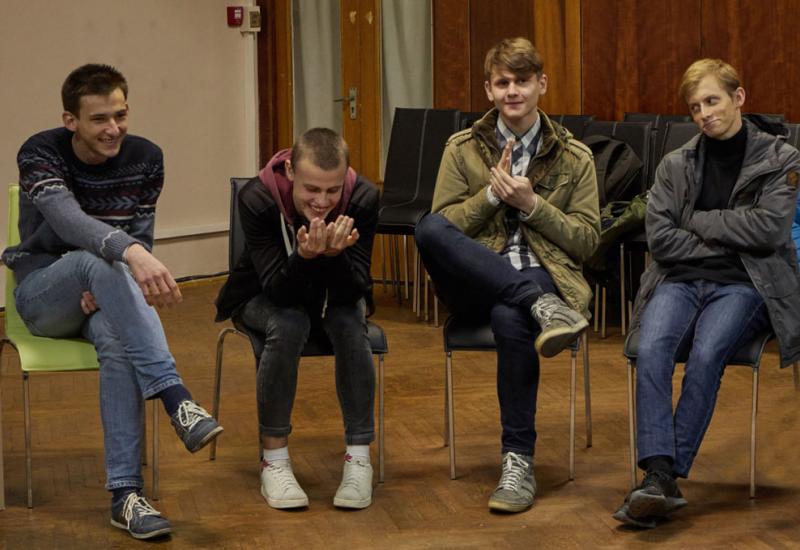In the library of Igor Sikorsky Kyiv Polytechnic Institute, a regular meeting of the philosophical club “Harmata” was held. It was devoted to the issue of connection between education and Scientific Revolution.
Philosophical club “Harmata” started its meetings on March 12, 2018. In the announcement to the first meeting, the organizers wrote: “There are no forbidden topics for us. Love, freedom, consciousness, society, religion, science - we will not have ready answers, only heated discussions, dialectics, and hardcore.”
Indeed, the topics of discussion that have already taken place are both bold and cover a wide variety of issues: “How did a woman become human?”, “Love or partnership?”, “To change the world or start with yourself first?”, “Is it worth being a nihilist?”, “Where do the feelings come from?”, “Ideal", “Scientific outlook”, “Machine and human”, “Cybernetics and philosophy”, “Assessment and development of programmers' knowledge”.
Not only the club members but also guest speakers take part in discussing, including Ukrainian writer Artem Chapai, American professor Benjamin Peter, who wrote the book “How Not to Network a Nation: The Uneasy History of the Soviet Internet”, professor Viktor Dosenko – geneticist, Head of the Department of General and Molecular Pathophysiology of Bogomoletz Institute of Physiology.
The participants of the last meeting, which took place on October 28, were, as always, students, postgraduate students, young scientists. In a free discussion, they jointly looked for answers to questions:
- Scientific Revolution strides confidently into the future, but does modern education meet its goals?
- Why do we feel a gap between knowledge and work?
- Does revolution push education toward development?
- Who are we after education: a “work tool” or a person, a skeptic or a dreamer?
Young philosophers also spoke about the concept of the Scientific Revolution. They also discussed the Industrial Revolution of the 18th and early 19th centuries and its influence on the development of education. The topics of discussion were also: the deindustrialization of Ukraine, the isolation of teaching from practice, when teachers do not work on research on specific issues of industrial production and do not participate in the development of new technology. The participants together sought answers to the question of how to improve the state of production, education, and society as a whole.
Of course, the participants in the discussion were not able to come up with any practical recommendations for solving problems that social scientists and politicians could not solve for a long time. But the interest of young people in the complex problems of our time and their desire to understand inspire hope that a solution will be found in the future.

